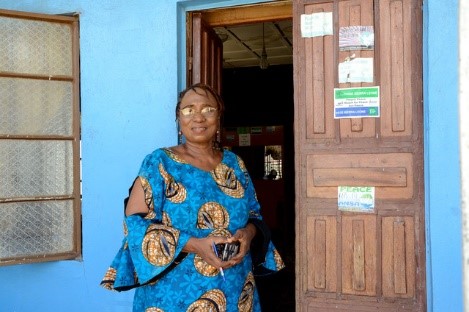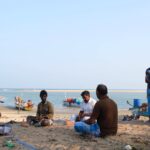This article was published more than 5 years ago.
This article is part of a series featuring inspiring stories of local action #fromthefrontlines of COVID-19 in the Global South. For more, visit our COVID-19 page and follow us on Facebook and Twitter.
In April, the United Nations warned that during lockdowns children face heightened risks of violence and abuse, and that an estimated 66 million children could face extreme poverty as a direct result of the pandemic.
In West Africa, Fund-backed children’s rights groups are taking a preventative approach to protecting children—drawing on lessons learned during the Ebola crises that struck the region six years ago.
In Sierra Leone, where an Ebola outbreak lasted from 2014 to 2016, local group Women against Violence and Exploitation in Society (WAVES) works to defend the safety and socio-economic rights of youth, with a focus on girls and children living in rural areas. Many families they serve live on only $2 a day.

During the Ebola outbreak, they saw that public health measures often left children vulnerable to violence and exploitation. Lockdowns and school closures meant children were forced to stay home for long periods, missing out on the safety and protection that schools offer.
While the home might seem the safest place for a child, in reality children face greater risk of violence there. As a result, abuse of children, particularly sexual abuse of girls, increased dramatically. Additionally, children who lost parents were often forced to beg to survive and, in some cases, girls found themselves turning to sex work. Teen pregnancies increased by 11 percent in affected communities. This time, WAVES is determined not to let this happen again.
The group has implemented physical distancing measures to allow their programming with children to continue, with a special focus on girls. They are providing instruction on how youth can help prevent coronavirus transmission as well as offering meals for poor children, lessening the economic burden for parents who may now be out of work. (In a recent survey on the impact of COVID-19 in Sierra Leone, food insecurity emerged as one of the biggest threats. During the Ebola outbreak, the rate of malnutrition in children in one district more than doubled.)
WAVES is also continuing to educate communities about sexual violence against girls and legal pathways for survivors. Their ability to remain operational means that vulnerable youth, and particularly girls, continue to have trusted adults to turn to when in need.
The role of community-based organizations and local activists became increasingly important during Ebola outbreaks. Due to its initial militarized response, the government struggled to reach the most vulnerable, and many in rural areas were not receiving accurate information about preventing spread of the virus.
There was also deep mistrust of government and health officials partly due to years of corruption and neglect of rural areas. With strong connections and trust built over the years, local organizers and community-based groups like WAVES stepped in to ensure their communities were educated about prevention and as well as accessing care.
This demonstrates the critical role that community-led interventions should play in shaping COVID-19 responses in Sierra Leone—and around the world. The director of WAVES, Hannah Yambasu, believes that these efforts must consider how different communities could be impacted by policy decisions. “When developing strategies to address an outbreak or pandemic, they should be holistic,” she says. “They must consider how an approach will adversely or positively affect other populations in the short- and long-term, including children.”
The Fund is proud to support WAVES and many other community based and youth-led groups in Sierra Leone with the funding they need to continue their work, as well as the strategic support necessary to strengthen their organization and to stand with children’s rights organizations throughout West Africa in keeping children and families safe during the pandemic.


